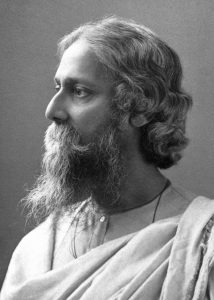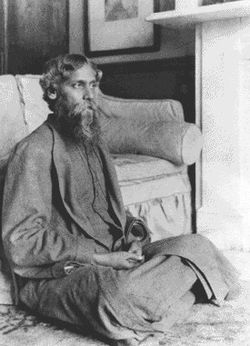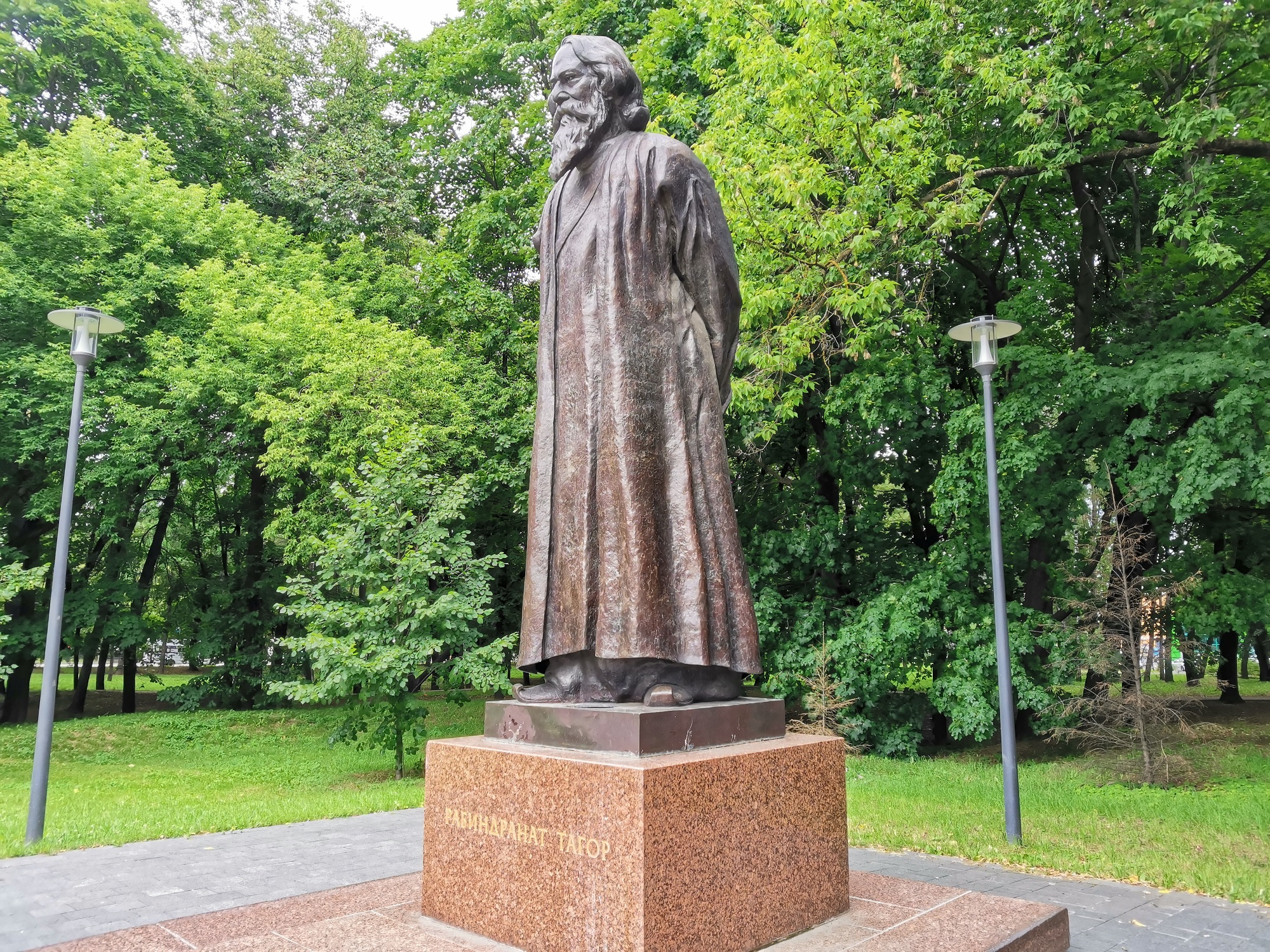Rabindranath
Tagore
1861-1941

Rabindranath Tagore was a prominent Indian poet and writer, and the first non-European to be awarded the Nobel Prize in Literature. He was born on May 6, 1861, in Calcutta into a wealthy family. Despite the family’s affluence, his childhood was marked by simplicity and discipline. As Tagore later recalled: “We knew nothing of fancy meals, and our modest wardrobe would amuse a modern child. Until the age of ten we went barefoot, and in the cold we wore only an extra cotton jacket. Our greatest sorrow was when the tailor forgot to sew on pockets—for every boy needs a place to store his treasures”. Tagore was educated at the Oriental Seminary and a teacher training college. His literary debut, the epic poem The Poet’s Story, appeared in 1878 when he left for the University of London. However, he did not complete his studies and soon returned to India, living for a while with his older brother, fearing his parents’ disapproval. In 1883, Tagore married Mrinalini Devi, to whom he gave the opportunity to receive an education—she would go on to become a highly educated woman. The couple had five children. The 1880s and 1890s marked the peak of Tagore’s creative activity, during which he published several notable poetry collections including Evening Songs (1882), Morning Songs (1883), The Golden Boat (1894), and The Moment (1900). From 1890, Tagore managed the family estate in Shelaidaha, where he actively engaged in writing. In 1901, he founded a school at the family estate near Calcutta, recruiting five teachers to launch the project. His personal life was marred by a series of losses: in 1902 his wife passed away, in 1903 his youngest daughter died, and in 1907 he lost both his father and his younger son. After his father’s death, Tagore inherited a considerable fortune and delegated estate management to his brothers. Tagore gained international acclaim in 1913, when he became the first non-European recipient of the Nobel Prize in Literature for his deeply spiritual and artistically refined poetry, which harmoniously blended Eastern and Western traditions. He wrote numerous dramatic works, including The Sacrifice (1890), The Post Office (1912), and Red Oleanders (1925). He was awarded honorary degrees by five universities, including Oxford. During World War II, Tagore was a vocal critic of Nazi ideology. His final poetry collections, On the Sickbed and Recovery, were published in 1940–1941. By the end of his life, Tagore had achieved unprecedented fame in India, with his name often mentioned alongside Mahatma Gandhi and Leo Tolstoy. In Moscow, a monument was erected in his memory.
Address: Moscow, Druzhba Park

